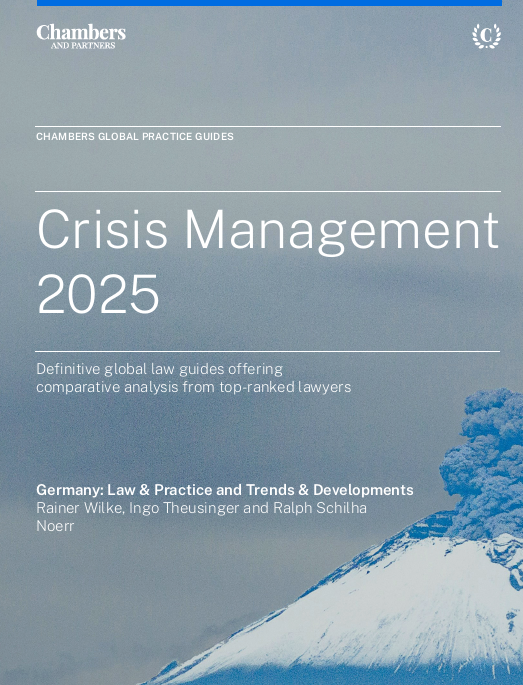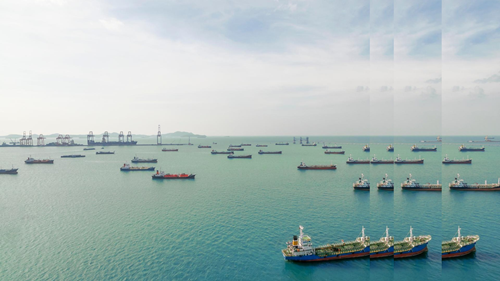Trends and developments in crisis management practice in Germany
Since the coronavirus pandemic, companies have increasingly had to deal with crises, some of which have different causes. Just think of the recent disruptions in international trade, wars or environmental disasters - all of which influence corporate behaviour.
Together with colleagues from other countries, our consultants have contributed to an anthology published by Chambers that deals with the - legal - management of various crises from different perspectives.
The most important takeaways:
Regulatory Changes and Compliance: Germany and the EU have tightened crisis management regulations, prompting companies to update compliance systems and engage in scenario planning to align with new legal requirements. The implementation of frameworks like the German Corporate Governance Code and compliance with sector-specific laws, such as the German Supply Chain Act, are crucial for companies to manage crises effectively and prevent legal repercussions.
Economic and Geopolitical Challenges: The German economy faces multiple challenges, including a 0.2% GDP contraction in 2024, geopolitical tensions impacting supply chains, and the need for sustainable energy investments. These factors necessitate enhanced crisis management strategies focused on financial resilience, supply chain stability, and adapting to political shifts that could affect international relations and trade agreements.
Cybersecurity and Technology Risks: The increase in cyber-attacks and the integration of AI pose significant risks to organizations. Companies must implement robust IT security measures and crisis management plans tailored to address cybersecurity threats, as well as leverage AI for predictive analytics and automated responses. The German government emphasizes cooperation between public and private sectors to enhance cybersecurity resilience.
Sector-Specific Challenges: Energy-intensive industries, automotive, and logistics sectors are particularly vulnerable to crises due to geopolitical risks and production disruptions. These sectors need to diversify supply chains and invest in renewable energy solutions supported by government measures to enhance their resilience. Compliance with regulations specific to critical infrastructures, such as the Critical Infrastructure Umbrella Law, is also necessary.
Crisis Management Frameworks and Lessons Learned: German companies utilize comprehensive crisis management frameworks in line with international standards (e.g., ISO 22301 for business continuity) to identify, assess, and mitigate risks. The study emphasizes the importance of conducting regular crisis simulations, training, and post-crisis reviews to continuously improve strategies and update policies, ensuring preparedness for future crises.
Click here for the complete study and here for the anthology.
Your contacts
Share
Well
informed
Subscribe to our newsletter now to stay up to date on the latest developments.
Subscribe now











